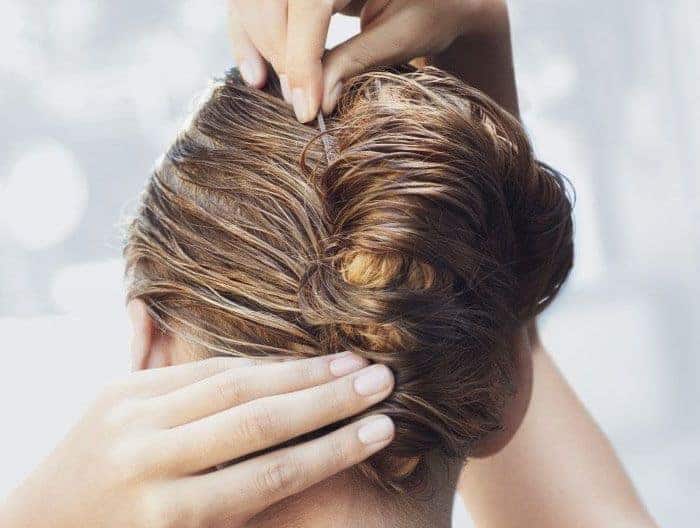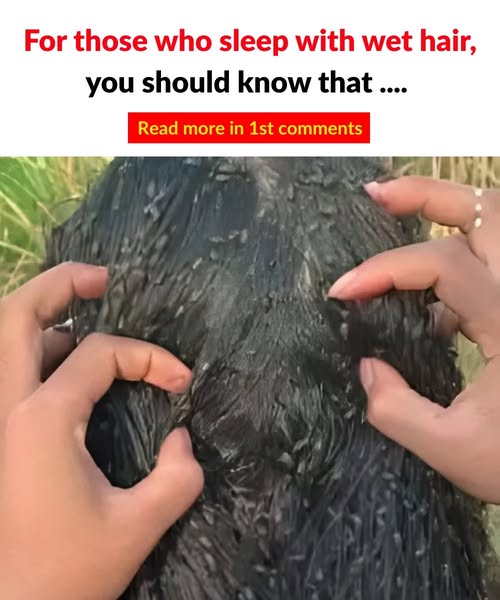Short, long, straight, or curly hair: everyone is affected
Contrary to popular belief, this isn’t just about hair length. The real issue lies with the scalp. Whether you sport a sleek bob or mermaid-like locks, prolonged moisture affects everyone the same way. Taking care of your scalp means protecting the health of your hair, whatever the style.
Tying up wet hair? Bad idea!

Many people think that putting damp hair into a ponytail or bun helps tame unruly strands at night. In reality, it puts even more stress on hair that’s already weakened. Wet hair is more stretchable and thus more fragile: tying it up is like bending a soaked twig — it breaks much more easily.
And beware of ties that are too tight: over time, they can cause progressive weakening at the roots.
Good habits if you wash your hair at night
No time to dry it completely? Here are a few quick tips to minimize damage:
-
Use a microfiber towel to remove excess water without rubbing.
-
Dry your hair at least 80% before sleeping.
-
Opt for a silk pillowcase to reduce friction.
-
Sleep with your hair loose or braided very loosely — never pulled tight.
Small gestures make a big difference
Sleeping with wet hair isn’t a crime… but it does come with consequences. By adopting a few simple habits, you can protect both your hair and your scalp for the long term. And in the morning, “your mirror will thank you”!

